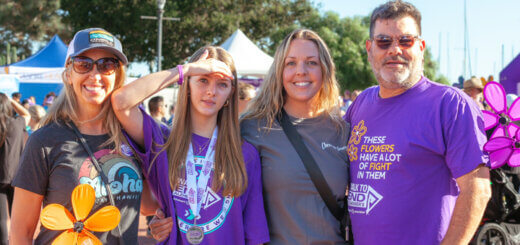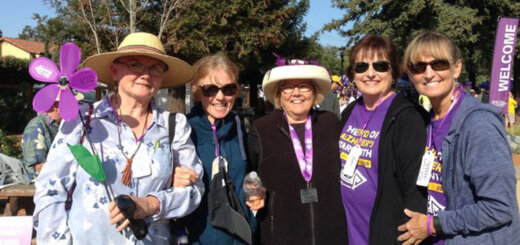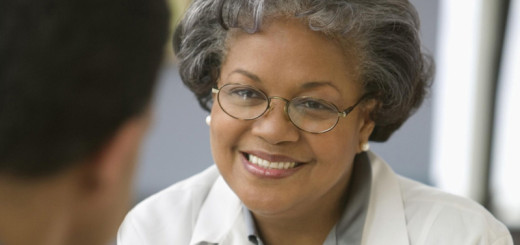Why I Walk: Jen’s Story
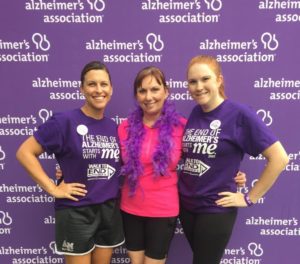 Jennifer Jackson has been an English instructor at Archbishop Mitty High School in San Jose for the past 11 years. She currently teaches a Contemporary Authors college preparatory course to Seniors. Her aim in choosing literature for this course is to ensure that it is a book that will be both impactful, and resonate with her students as they go off to college. That’s why she says she chose Lisa Genova’s 2007 bestselling novel “Still Alice”. It tells the story of a woman who’s been diagnosed with early-onset Alzheimer’s disease.
Jennifer Jackson has been an English instructor at Archbishop Mitty High School in San Jose for the past 11 years. She currently teaches a Contemporary Authors college preparatory course to Seniors. Her aim in choosing literature for this course is to ensure that it is a book that will be both impactful, and resonate with her students as they go off to college. That’s why she says she chose Lisa Genova’s 2007 bestselling novel “Still Alice”. It tells the story of a woman who’s been diagnosed with early-onset Alzheimer’s disease.
Why did you choose to introduce your students to Still Alice?
I choose books that I believe will still be discussed fifty years from now, and that have all changed me in some way. Still Alice was a book unlike any other I had read for many reasons; it got me thinking about the power of family, the importance of communication; and that every single person is going through something that they may feel utterly powerless about.
I felt it could be an integral part of my curriculum because of all of the themes that are brought up throughout its pages: shared intimacy in relationships, maintaining control, what happens when we lose what we feel defines us, strained relationships due to lack of honest/ real communication, and how it can be far easier to cope and grieve on an individual level, rather than in a group setting.
A follow up assignment I have my students do, is that they create a video documentary of their lives (much like Alice’s children did for her), so that they can hear how loved and appreciated they are by the special people in their lives.
Do you have a personal connection to the disease?
I do not know much about Alzheimer’s, nor has anyone been affected by this terrible disease that I personally know.
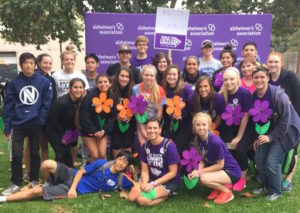 And yet you joined the Walk to End Alzheimer’s and formed a team with your students…
And yet you joined the Walk to End Alzheimer’s and formed a team with your students…
Yes, one day, as I was driving through San Francisco, I saw signage posted throughout advertising for the Walk to End Alzheimer’s. Since I was currently teaching Still Alice at the time, I thought it would be a wonderful event for my seniors to attend with me, and we had an amazing turnout.
Why is it important to educate young people on such issues?
I don’t think young people realize how much of an impact they can truly have sometimes. I teach really great kids, who are going off to do amazing things, and everyone can start somewhere. Sometimes it can feel overwhelming with all of the problems that surround us all on a daily basis, but I’m constantly reiterating to my students that they need to realize they can do something, they can affect change, and as future global citizens, they have an obligation to help others.
Helpful information related to this post:





